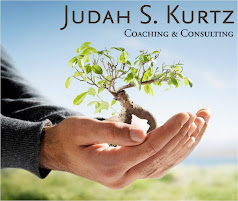At some point, and often at many points in our lives, we ask the questions: Who am I and what do I want to be (do) when I grow up? Work and career are an important means by which people manifest themselves in the world. For most of us, a large proportion of our waking hours is spent working. Because of this, it is important to an overall sense of happiness that each of us is content in what we are doing on a day-to-day basis. While some labor as a means to an end (and may or may not be happy), there are many who derive a great amount of personal fulfillment and satisfaction from their professions.
These fun
 damental topics of happiness, purpose, meaning, and choice are a large part of what I focus on with my clients, and were the crux of my Master's thesis at Northwestern University. The study is titled: The Quest for Happiness: An Exploration of Values, Vocational Choice, and Meaning in Life and Work. Using quantitative and qualitative survey data, I examined how those who report high and low levels of overall happiness tend to rate and rank their values, make choices with respect to work and life roles, and how they derive or assign meaning to those choices. Based on a robust sample (thanks to many of my readers for completing the survey!), the results demonstrated that there is a strong linkage between each of these factors, and that happiness and work satisfaction are directly impacted by the vocational and life choices people make.
damental topics of happiness, purpose, meaning, and choice are a large part of what I focus on with my clients, and were the crux of my Master's thesis at Northwestern University. The study is titled: The Quest for Happiness: An Exploration of Values, Vocational Choice, and Meaning in Life and Work. Using quantitative and qualitative survey data, I examined how those who report high and low levels of overall happiness tend to rate and rank their values, make choices with respect to work and life roles, and how they derive or assign meaning to those choices. Based on a robust sample (thanks to many of my readers for completing the survey!), the results demonstrated that there is a strong linkage between each of these factors, and that happiness and work satisfaction are directly impacted by the vocational and life choices people make.I recently completed my Master's of Science in learning and organizational change at Northwestern, and am working on a white paper version of my findings. However, I have available three different versions of my thesis for readers:
- Full thesis
- Thesis without appendices
- Condensed version of thesis (omits some findings)
UPDATE: Thank you to all who have requested copies of this work over the years. I am no longer sharing this, however, I am working on leveraging this and many other topics in additional writings. If you are interested in being notified when these become available, let me know and I'll add you to my confidential list. Thanks!






